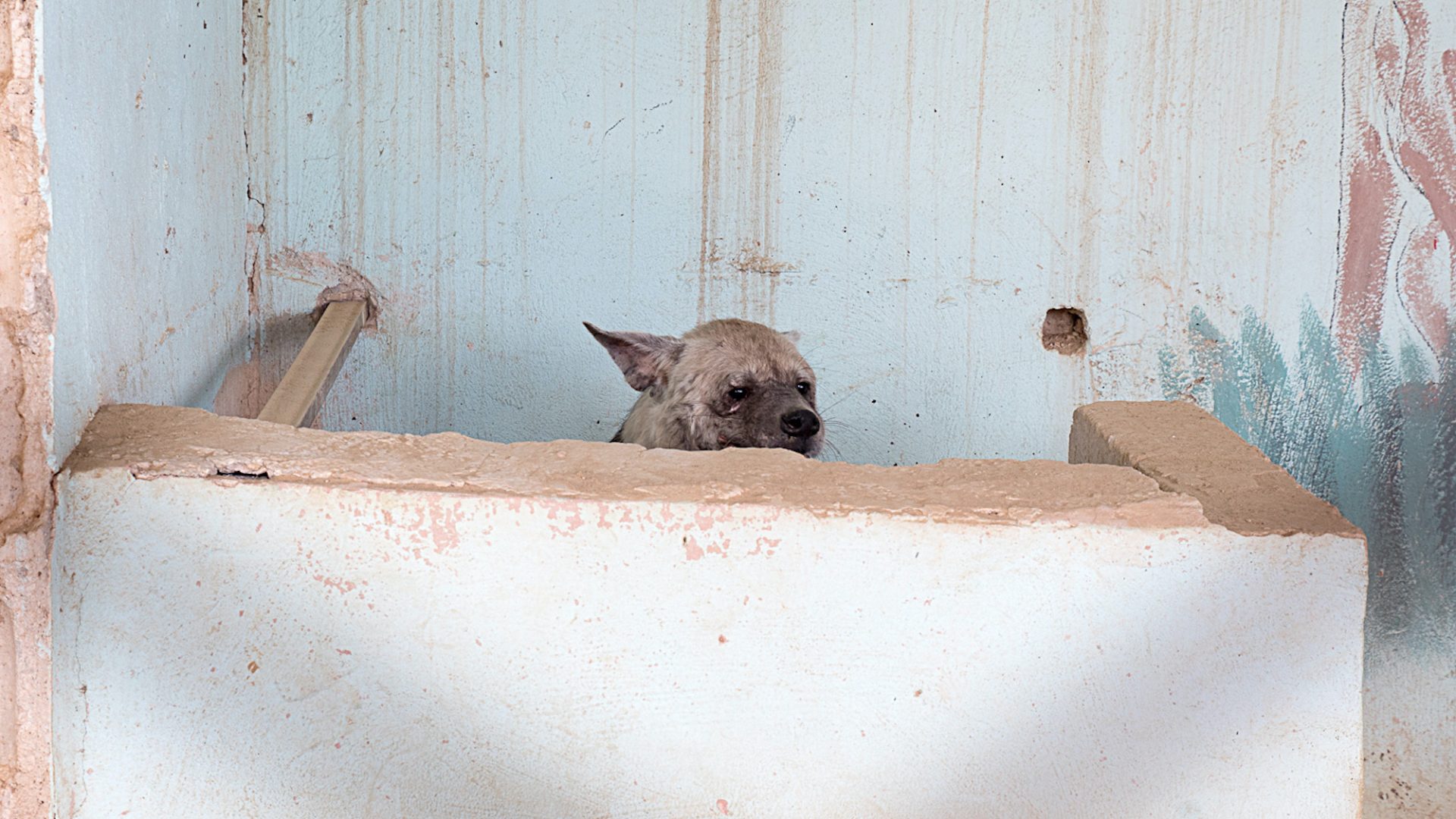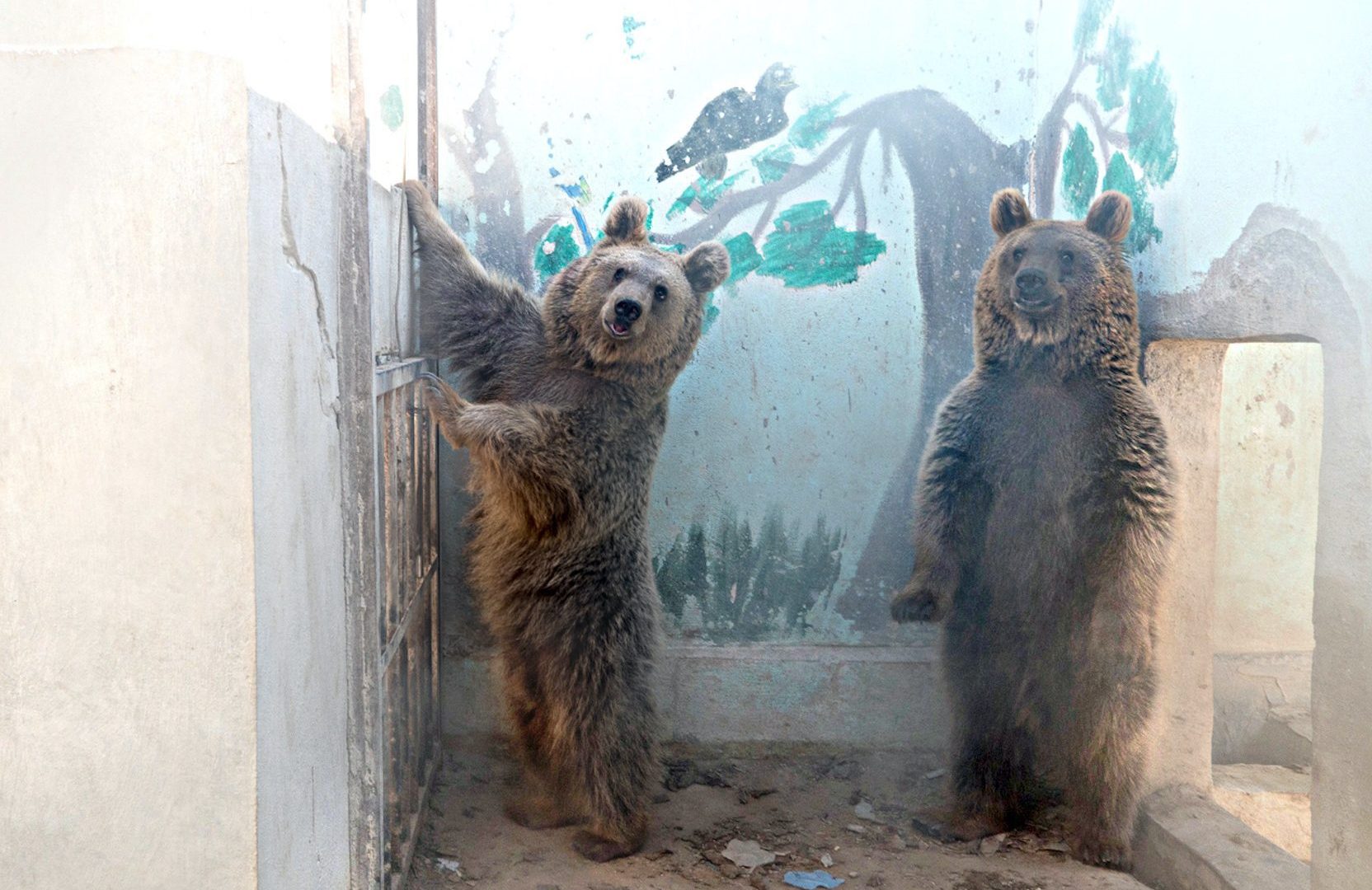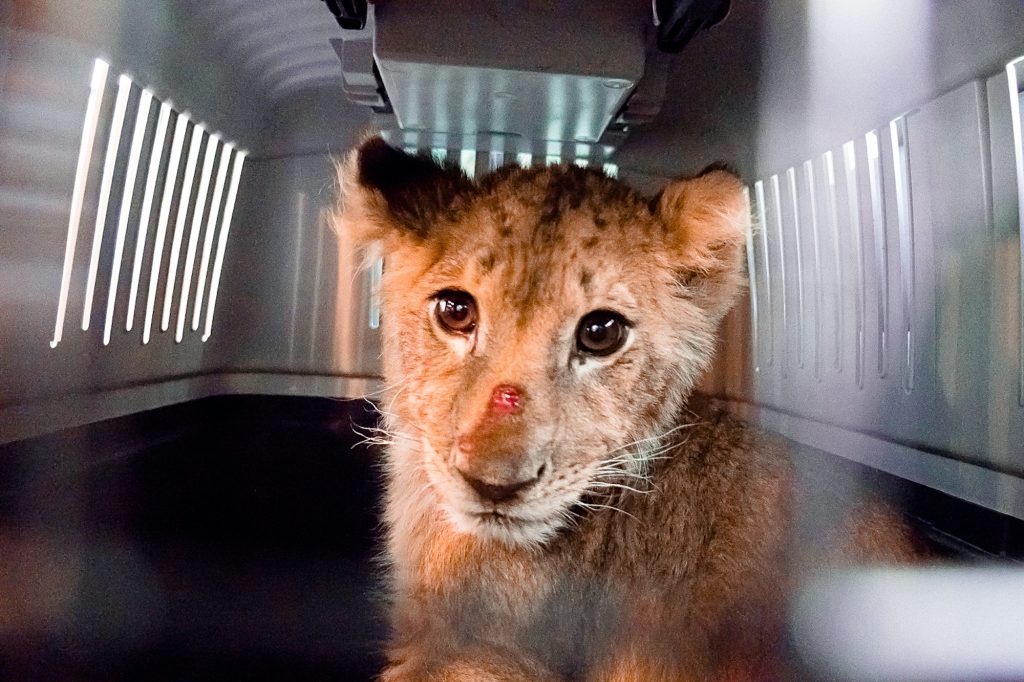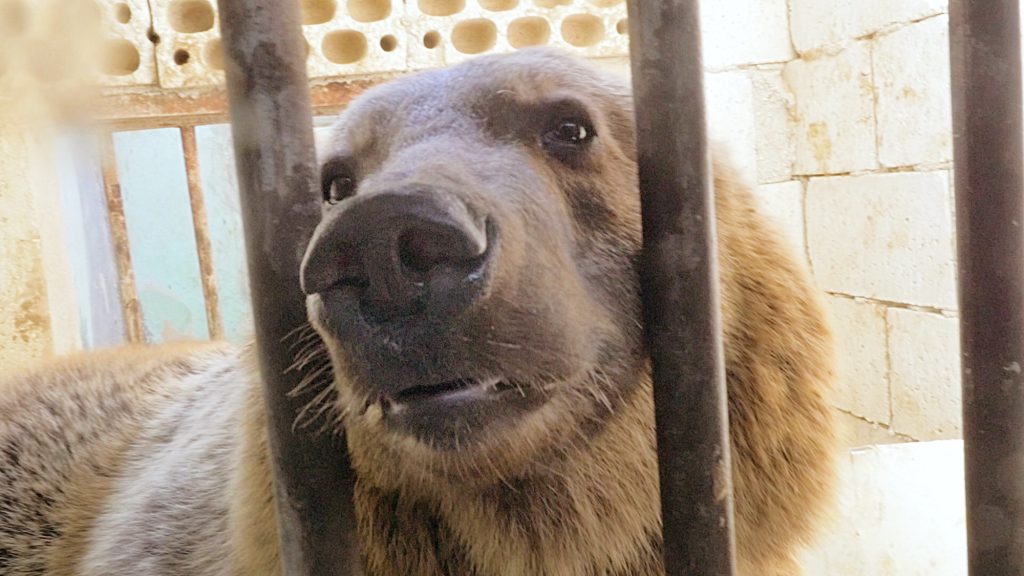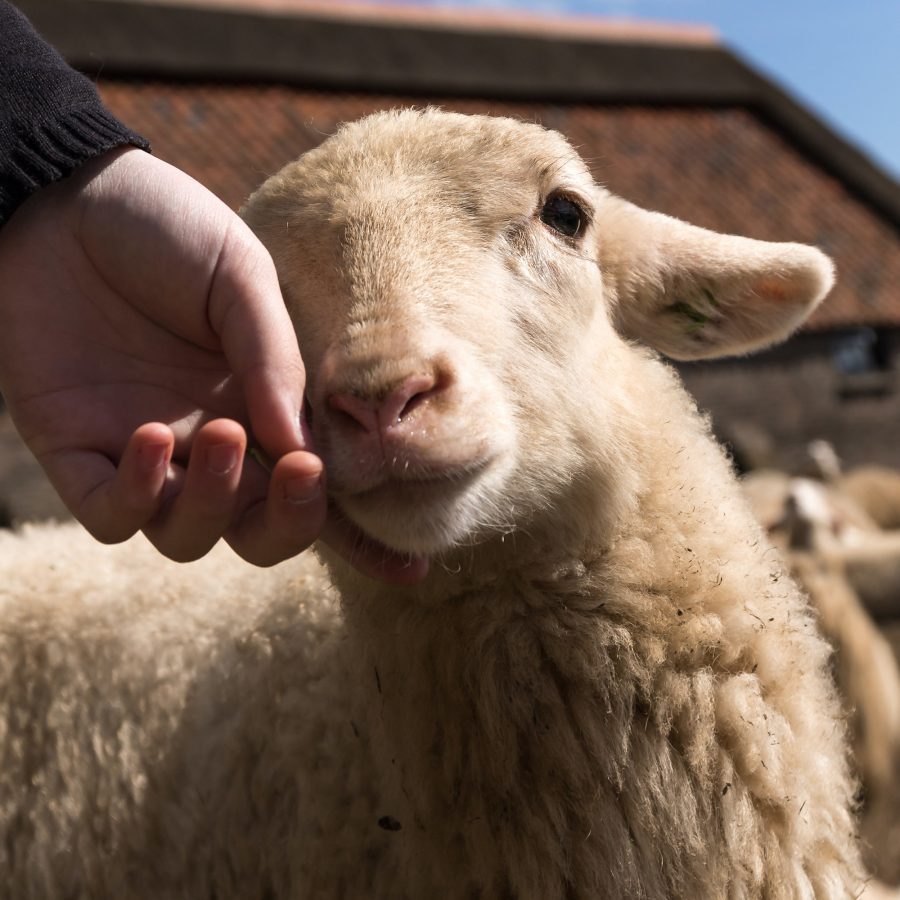A new home and a new life for victims of the illegal wildlife trade.
Our work investigating the live export trade to Jordan led to a special friendship with HRH Princess Alia al Hussein and the establishment of the Princess Alia Foundation (PAF) – an initiative to cultivate care and compassion for animals.
As part of our work with PAF we were asked to visit the country’s zoos, where like in many parts of the world where the illegal wildlife trade is thriving, zoo owners had found themselves with animals they had no capacity to properly care for.
- bears were living in solitary confinement
- waterbirds were deprived of water
- highly intelligent striped hyenas cowered in fear in small concrete pens
- a lone lion cub in a barren cage was already showing signs of trauma, and
- other animals were living in conditions that denied them any ability to express natural behaviours


